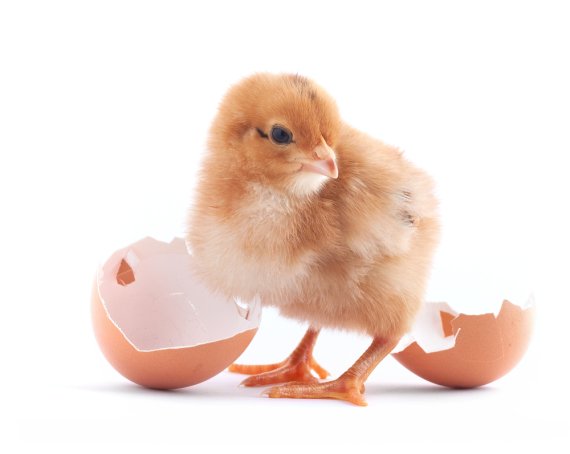© Shutterstock
The male chicks of laying breeds are worthless from an economic point of view. They don’t lay eggs and are not suitable for meat production. They are therefore killed immediately after they hatch. Professor of Ethics Bart Gremmen and his team asked over 2000 Dutch people what they thought would be the best alternative.
For example, you could use the make chicks for meat after all. One third of the respondents thought that would be a good idea. However, this costs more time, feed and space. Gremmen: ‘That makes the meat more expensive and worse for the environment. Another option is the dual-purpose chicken, which can produce both meat and eggs. But that too is less efficient than today’s specialized poultry farming.’
A further option is to identify the male chicks while they are still in the egg and only hatch the females. Wageningen Livestock Research has worked on a technique for introducing a fluorescent gene in chickens so that the sex can be determined as soon as the egg has been laid. But the Dutch government called a halt to the development of this technique in 2014 because of the controversial use of genetic modification. Instead, they opted for a different technique that measures hormone levels. However, this technique turned out to be the least popular option: only six percent of respondents thought it a good idea. ‘To do this, you have to stick a needle in the egg,’ explains Gremmen. ‘Afterwards, you can no longer eat the eggs and people find that wasteful.’
A third option is to determine the sex using a laser beam. 11 percent of the people surveyed thought that was the best alternative while genetic modification got 21 percent of the votes.

